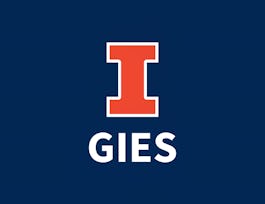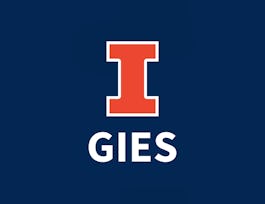In markets, prices act as rationing devices, encouraging or discouraging production and consumption to find an equilibrium. In this course, you will learn to construct demand curves to capture consumer behavior and supply curves to capture producer behavior. The resulting equilibrium price “rations” the scarce commodity. Additionally, the course examines the ways in which markets are subject government intervention and the impacts of these interventions.


Firm Level Economics: Markets and Allocations
This course is part of Managerial Economics and Business Analysis Specialization
Taught in English
Some content may not be translated

Instructor: Larry DeBrock
41,430 already enrolled
Included with 
Course
(1,035 reviews)
96%
Skills you'll gain
Details to know

Add to your LinkedIn profile
13 quizzes
Course
(1,035 reviews)
96%
See how employees at top companies are mastering in-demand skills

Build your subject-matter expertise
- Learn new concepts from industry experts
- Gain a foundational understanding of a subject or tool
- Develop job-relevant skills with hands-on projects
- Earn a shareable career certificate


Earn a career certificate
Add this credential to your LinkedIn profile, resume, or CV
Share it on social media and in your performance review

There are 5 modules in this course
You will become familiar with the course, your classmates, and our learning environment. The orientation will also help you obtain the technical skills required for the course.
What's included
2 videos6 readings1 quiz1 discussion prompt
This module introduces the concept of a perfectly competitive market. It is a benchmark construction, but it accurately models many markets in our economy. We will understand equilibrium outcomes in both the short run and the long run. We will understand how to analyze shocks to these equilibria.
What's included
12 videos2 readings3 quizzes
Analysts can predict equilibrium outcomes with some degree of certainty. We want to construct a measure of efficiency that will allow us to evaluate the attractiveness of these equilibrium market outcomes. After using this metric to consider the efficiency of the competitive market, we will introduce a different market structure, monopoly, and use our efficiency metric to evaluate the equilibrium resource allocation under monopoly.
What's included
10 videos2 readings3 quizzes
Perfectly competitive markets have many sellers. Monopoly has one seller. But much economic activity takes place in markets with just a handful of very large producers. These are called oligopoly markets. We will look at collusive arrangements among a small number of rivals, and then will use simple game theoretic techniques to model equilibrium.
What's included
15 videos2 readings3 quizzes
Sometimes even markets that appear to be capable of great efficiency in resource allocation, such as the perfectly competitive market, can fall short of efficiency. Economists call this market failure. In this module, we will consider information issues and the impact on efficiency. We will also introduce externalities (spillovers) such as pollution and model these impacts.
What's included
9 videos5 readings3 quizzes1 peer review1 plugin
Instructor

Recommended if you're interested in Finance

University of Illinois at Urbana-Champaign

University of Illinois at Urbana-Champaign

University of Illinois at Urbana-Champaign

University of Illinois at Urbana-Champaign
Get a head start on your degree
This course is part of the following degree programs offered by University of Illinois at Urbana-Champaign. If you are admitted and enroll, your coursework can count toward your degree learning and your progress can transfer with you.
Why people choose Coursera for their career




Learner reviews
Showing 3 of 1035
1,035 reviews
- 5 stars
87.43%
- 4 stars
11.11%
- 3 stars
1.06%
- 2 stars
0%
- 1 star
0.38%
New to Finance? Start here.

Open new doors with Coursera Plus
Unlimited access to 7,000+ world-class courses, hands-on projects, and job-ready certificate programs - all included in your subscription
Advance your career with an online degree
Earn a degree from world-class universities - 100% online
Join over 3,400 global companies that choose Coursera for Business
Upskill your employees to excel in the digital economy
Frequently asked questions
Access to lectures and assignments depends on your type of enrollment. If you take a course in audit mode, you will be able to see most course materials for free. To access graded assignments and to earn a Certificate, you will need to purchase the Certificate experience, during or after your audit. If you don't see the audit option:
The course may not offer an audit option. You can try a Free Trial instead, or apply for Financial Aid.
The course may offer 'Full Course, No Certificate' instead. This option lets you see all course materials, submit required assessments, and get a final grade. This also means that you will not be able to purchase a Certificate experience.
When you enroll in the course, you get access to all of the courses in the Specialization, and you earn a certificate when you complete the work. Your electronic Certificate will be added to your Accomplishments page - from there, you can print your Certificate or add it to your LinkedIn profile. If you only want to read and view the course content, you can audit the course for free.
If you subscribed, you get a 7-day free trial during which you can cancel at no penalty. After that, we don’t give refunds, but you can cancel your subscription at any time. See our full refund policy.

